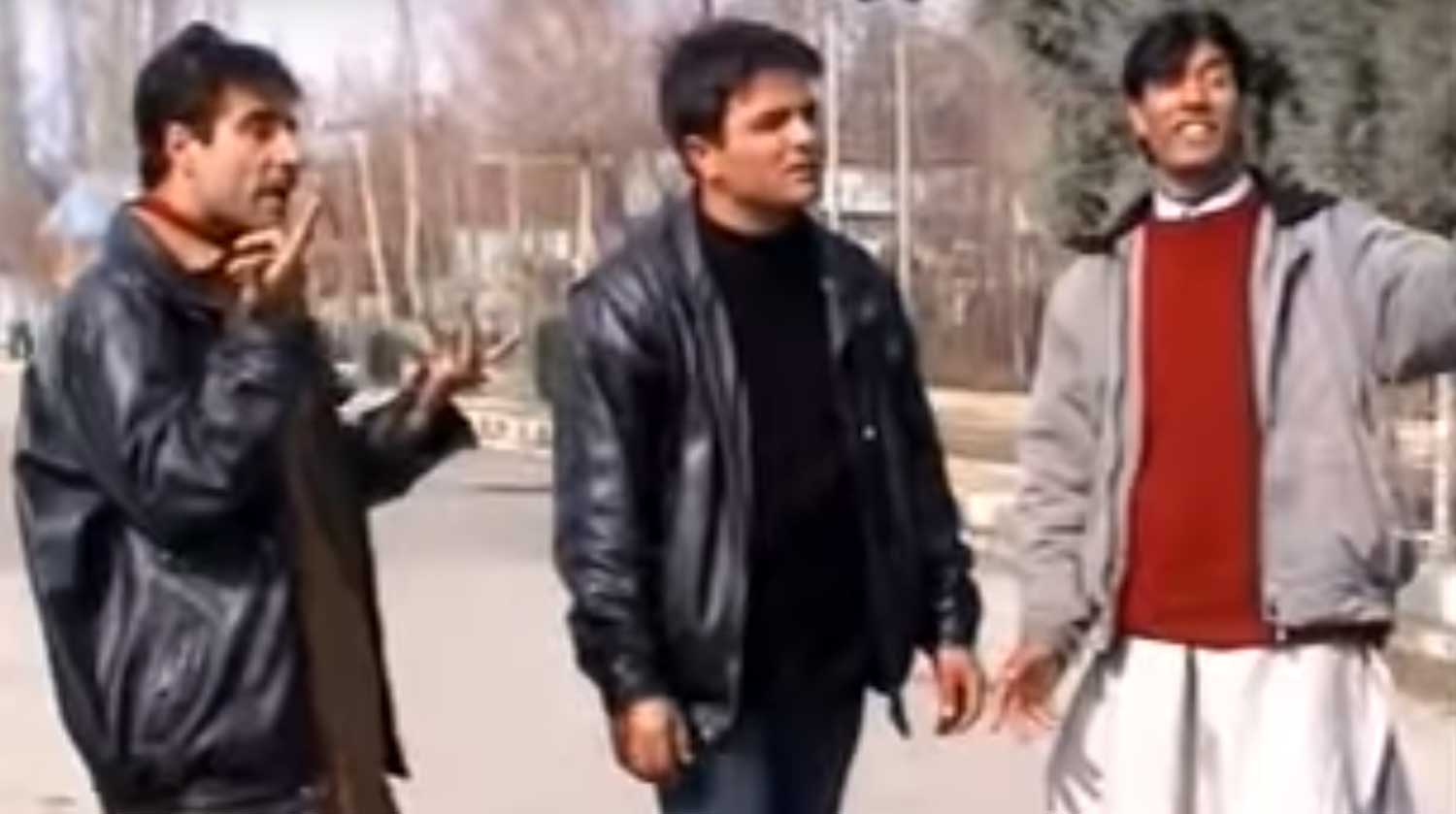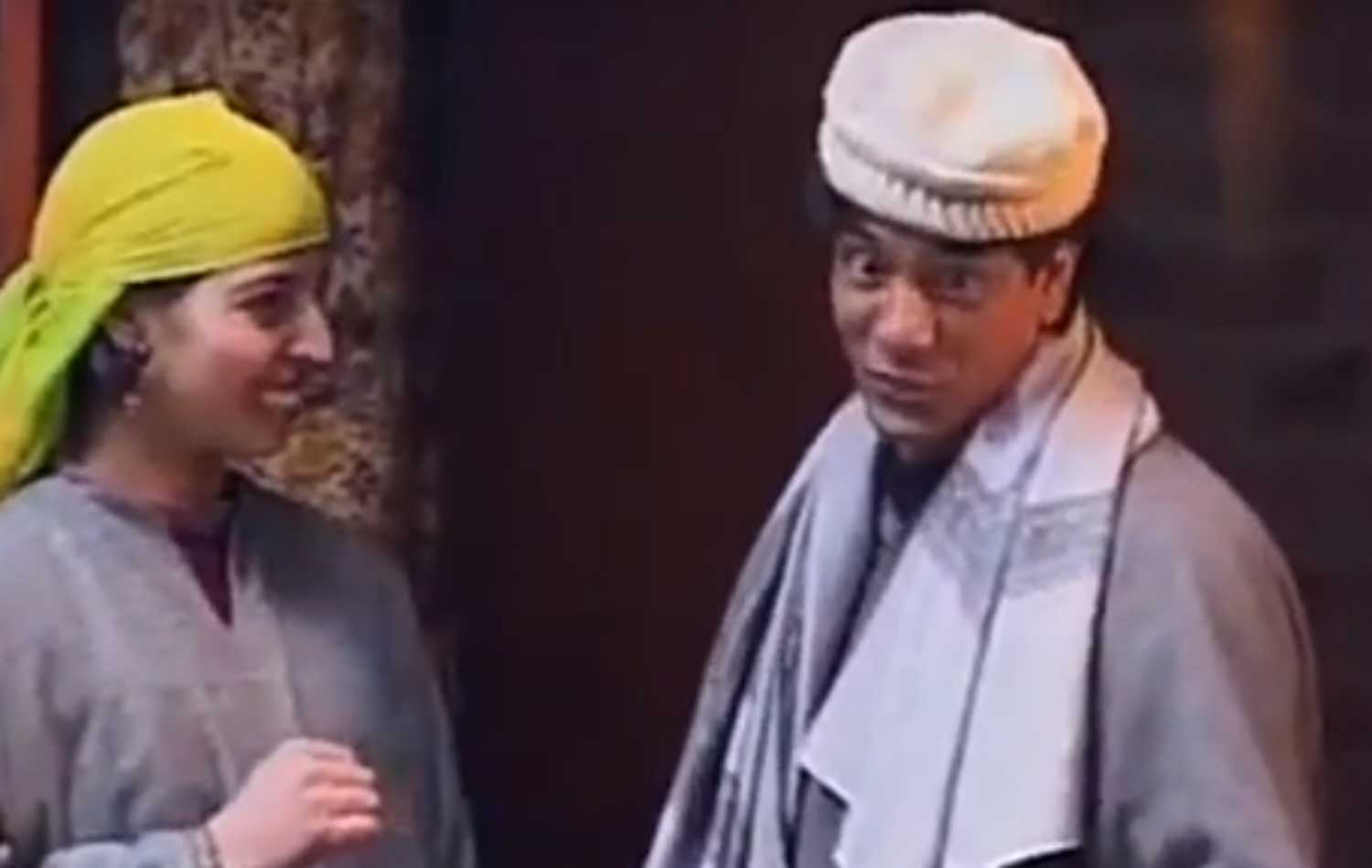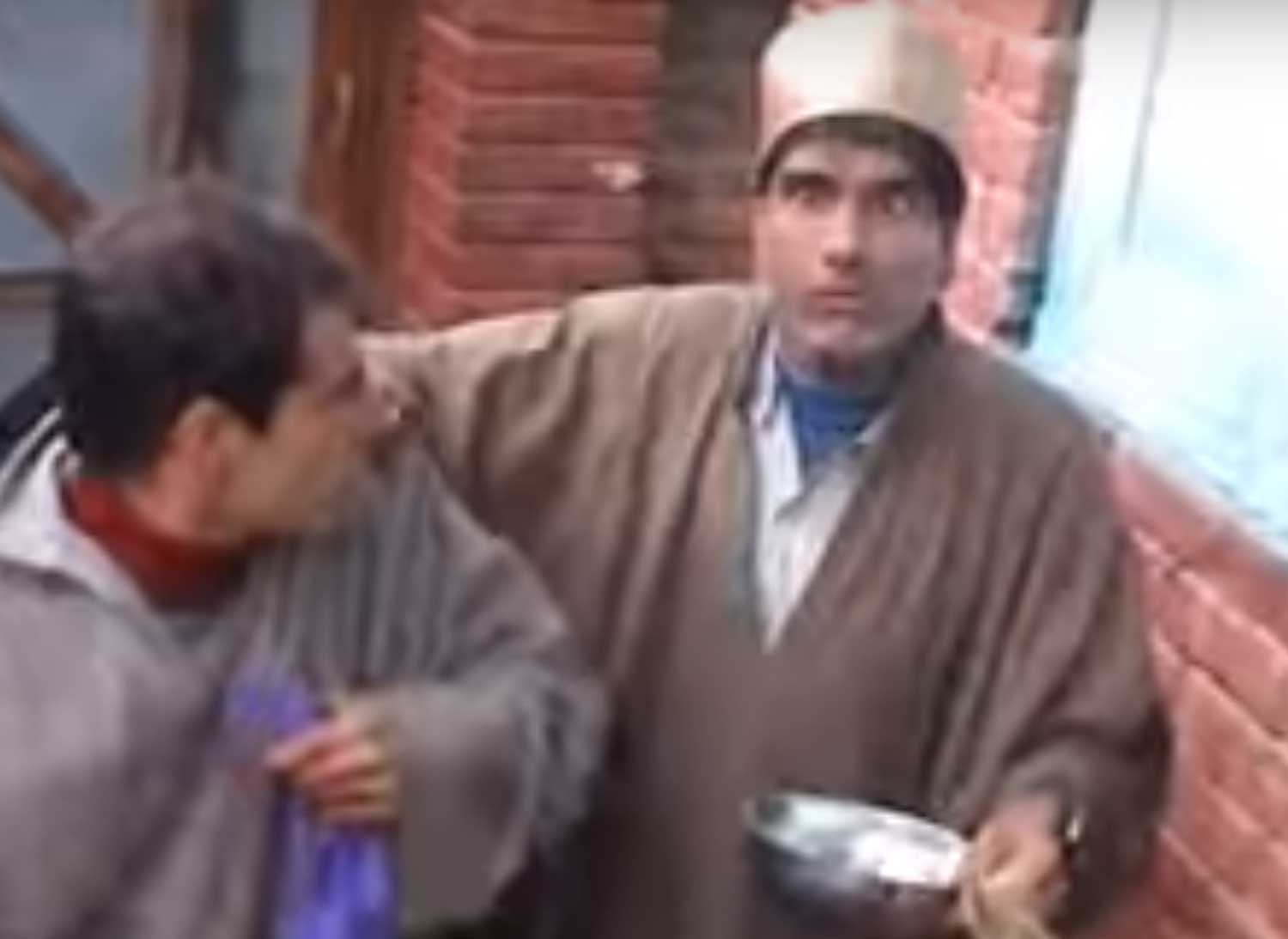His cable TV appearance in early 2000 made him one of the funniest men of Kashmir whose grass-root wisecrack created a laugh riot inside the drawing rooms across the valley. But now, the comedian-turned-grocer-turned-crusader is spending his days in salvaging the lost pride of Kashmir’s fading folklore.
The reel scene is about to become dead funny.
A swaggering music teacher mentoring two of his women disciples creates a literal laugh riot inside a room with his antics. He sings Bollywood numbers in Kashmiri version, and calls them his own compositions. He makes the girls sing loud, louder, loudest—until their irked father shows up to add a new twist in the unfolding hilarity.
Some 15 odd years after this televised scene first appeared on a local cable channel in Kashmir, many still remember the boastful teacher who went on to deliver some memorable performances with his funny eye movements and sharp wit.
Along with his ace contemporary comedians—Seth Rafi and Gulzar Fighter—Bashir A. Bhat, baptised as Bashir Kotur by Seth Rafi, became a member of the celebrated comic cult.

From Left: Gulzar Fighter, Seth Rafi and Bashir Kotur.
The hilarious troika went on to appear in a number of comedy serials to the sheer delight of strife-stricken Kashmir back in the day.
Although many would still vouch for the legendary Kashmiri comedian Ahed Raaz then, the early 2000 comedians like Bashir Kotur did manage to spread smiles and laughs around — despite fanboys of Ahed Raaz saying that this “new Budgam clown pales in comparison with Budgam’s original joker”.
Much of this gossip stemmed from the spaces where these cults were being made or decimated: either at barber shops, or on shopfronts. It was the era when Kashmir was still in throes of war. Then, the restaurant mushrooming across Srinagar and subsequent emergence of new debate spaces were yet to come up.
But today, much of that fame has faded.
While Seth Rafi is battling with his ailing health, Gulzar Fighter is hardly making any TV appearances. The unfortunate split has now left Bashir Kotur to grapple with his own struggling phase of life—where he is caught between living and activism.
ALSO READ: Kashmiri humourist of ‘Sheherbeen’ fame now living in ‘paralyzed silence’
Some 15km away from the city centre Lal Chowk, the humorist comes from Budgam’s Hanji Gund, a village known to house Bandhs.
Dotted with mud and timber houses, the village still wears the traditional country face. A weather-beaten wooden bridge connects the village with the rest of Budgam. Inside a pastoral lane of Hanji Gund, Bashir Kotur’s grocery shop is crowded with people.

Bashir, now living as a grocer. (FPK Photo/Furqan Khurshid)
Unlike his wiry reel personality, Bashir has put on some weight. But his antics continue off the camera as well. Wearing a smiling face, he passes funny comments to his villagers and lifts the mood of the place.
“That’s what I do since childhood,” he talks about his gifted funny side. “As a child, I used to mimic an old man’s voice in my village. It made me some kind of a clown for my tribe, which ultimately became my identity.”
Apart from mimicking, the kid Bashir would sing traditional songs. “My school teacher Ghulam Rasool used to make me sing songs instead of teaching me,” he smiles.
He still remembers the song he would sing for him: “Dilbar chu mai sitamgar” (My beloved is brutal).
These lines were like the primary syllabus for him. Back home then, he would desperately wait for marriage seasons and a chance to slip away from his bed in the middle of the night and join the singing groups.
That devotion finally compelled him to leave school in 5th standard “as books never attracted me”.
To compliment his singing skills, he began learning Kashmir’s folklore art form, Bandh-e-Pather, from his Bandh family and other artists in his village. A satirical and realistic drama, Bandh-e-Pather incorporates familiar legends and contemporary social satire and is performed in an open space.
ALSO READ: The Bhands of Budgam and their cultural crusade
But learning the fading folklore, which wasn’t finding many takers around, due to the emergence of new entertainment modes and forms, Bashir kept struggling for upholding his conviction for the dying art form.
At times, he says, he was mocked for ‘flogging the dead horse’. This, his friends would tell him in good faith, because the art he was so passionate for, was hardly helping him to keep the kitchen lit. Being from an underprivileged family further created an existential crisis for him.

But for the love of it, Bashir continued performing as a Bandh and joined the National Bandh Theater under the supervision of late Ghulam Ali Majboor. For almost 16 years, he learned singing and dancing from his master. His devotion remained matchless throughout the period.
During his Delhi trip then, when he saw a dancer from Andaman and Nicobar Islands performing by holding glasses and plates full of water on her hands and forehead, he made it a point to learn the dance form, anyhow.
“I broke many glasses and plates to master that art,” he smiles.
But despite being one of the finest artists who staged and wrote his own plays — like the famous Ladi Shah, he had to switch to an alternate job for living. With TV contracts that have dried long back, he now runs a grocery shop to sustain his family. Many in his tribe are doing odd jobs to sustain their families. Though they love Bandh-e-Pather, but it isn’t putting enough food on their table.

However, Bashir, the seventh generation Bandh, continues to slog to salvage the lost pride of Bandh-e-Pather through his cultural crusade. But to bat for something which is still being looked down upon in society is not easy.
“But then,” he says, “Bandh-e-Pather’s strong Sufi connection is enough a motivation for me to serve the art-form till my last breath.” The very assertion makes one believe that his ‘comedy of errors’ has indeed come full circle — from the reel music teacher to a real crusader.
Like this story? Producing quality journalism costs. Make a Donation & help keep our work going.








